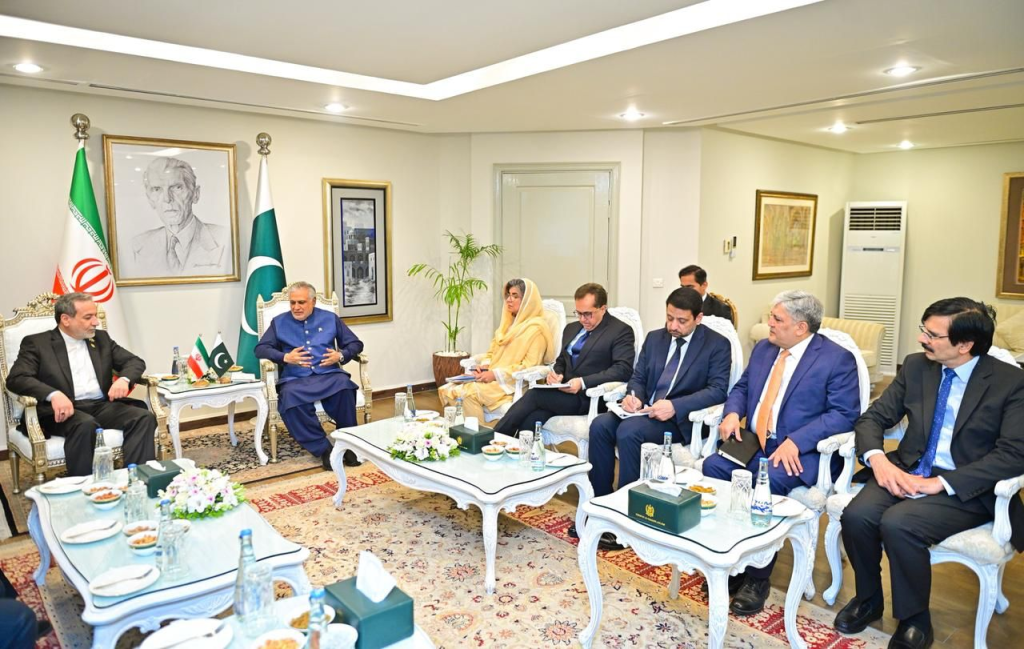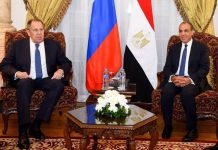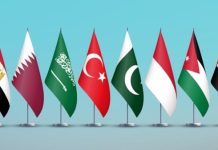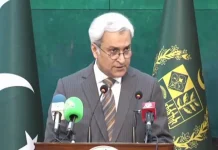
ISLAMABAD – In a key diplomatic engagement aimed at bolstering bilateral relations, Deputy Prime Minister and Foreign Minister of Pakistan, Senator Mohammad Ishaq Dar, held an in-depth meeting today with the Foreign Minister of the Islamic Republic of Iran, Seyyed Abbas Araghchi. The meeting took place on the sidelines of the official state visit of Iranian President Dr. Masoud Pezeshkian to Pakistan from 2–3 August 2025.

Foreign Minister Araghchi is accompanying President Pezeshkian as part of a high-powered delegation, reflecting the importance both nations attach to fostering robust bilateral ties. The talks between the two foreign ministers focused on a wide range of substantive issues, laying the groundwork for leadership-level discussions.
Key areas of discussion included:
- Regional Developments: Both sides exchanged views on the evolving regional landscape, underlining the need for a unified approach to peace and stability, particularly in the context of developments in Afghanistan, the Middle East, and the broader Muslim world.
- Trade and Connectivity: Emphasis was placed on enhancing bilateral trade volumes, improving border infrastructure, and exploring avenues for transit and energy connectivity, including the Iran-Pakistan gas pipeline and cross-border electricity trade.
- Energy Cooperation: The leaders discussed practical steps to expand cooperation in the energy sector, with a shared understanding of the mutual benefits of increased energy exchange, especially for border communities.
- Institutional Mechanisms: Both ministers highlighted the importance of strengthening existing mechanisms for regular consultation and coordination, such as the Pakistan-Iran Joint Economic Commission and high-level strategic dialogues.
Deputy Prime Minister Ishaq Dar reaffirmed Pakistan’s strong commitment to its fraternal ties with Iran, emphasizing the historical, cultural, and religious bonds that unite the two neighbouring nations. He noted that sustained engagement and meaningful collaboration are key to unlocking the full potential of Pakistan-Iran relations.
Foreign Minister Araghchi, for his part, expressed appreciation for Pakistan’s warm welcome and reaffirmed Iran’s desire to further deepen ties based on mutual trust, non-interference, and shared regional aspirations. He stressed Iran’s readiness to work closely with Pakistan on all fronts — political, economic, and security.
Both leaders agreed on the need to intensify people-to-people exchanges, cultural cooperation, and academic linkages to foster greater understanding between the two societies.
The meeting concluded on a positive note, with both ministers expressing optimism about the future trajectory of Pakistan-Iran relations and reiterating their shared vision for a peaceful, prosperous, and interconnected region.
BY: The Times Union







